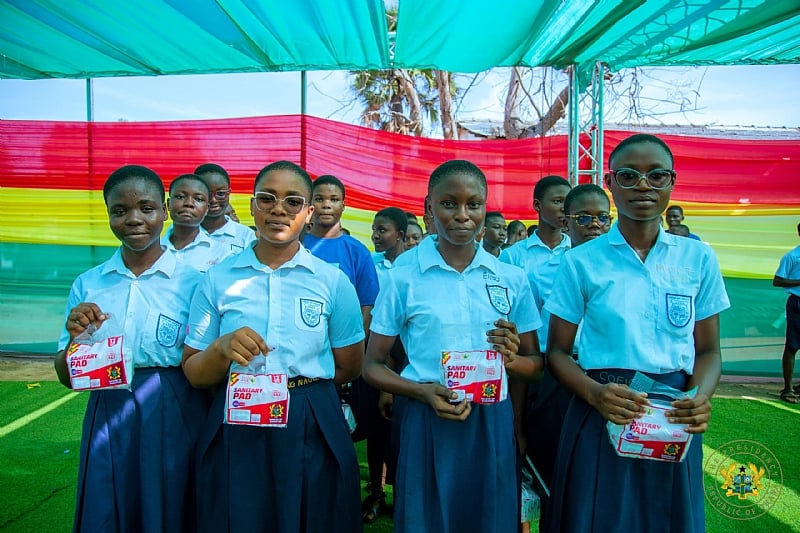The launch of the Free Sanitary Pad Distribution Programme in Ghana marks a significant milestone in the pursuit of gender equity in education and improved menstrual health management for schoolgirls. President John Dramani Mahama fulfilled a campaign promise by initiating this program, which aims to eliminate the financial burden on families and ensure that no girl misses school due to her menstrual cycle. The program’s national rollout signifies a nationwide commitment to tackling the challenges girls face due to a lack of access to proper sanitary products. This initiative goes beyond simply distributing pads; it represents a broader commitment to destigmatizing menstruation and fostering an environment where girls can confidently pursue their education without fear of embarrassment or social exclusion.
The genesis of this program can be traced back to a pilot project championed by then-Education Minister, now Vice President, Professor Naana Jane Opoku-Agyemang. While the initial attempt to implement the program faced opposition and ridicule from the then-opposition party, the current widespread acceptance of its importance underscores a shift in societal understanding. The previous resistance, rooted in a lack of comprehension regarding the challenges faced by menstruating girls, has given way to a recognition of the program’s crucial role in promoting educational equality. The program’s successful launch is a testament to the persistence of its advocates and the growing awareness of the need to address menstrual health as a fundamental aspect of girls’ well-being.
President Mahama emphasized the importance of viewing menstruation as a natural biological process rather than a source of shame or stigma. He highlighted the fundamental role of menstruation in reproduction and underscored the necessity of providing support to girls during this time. By removing the financial barrier to acquiring sanitary products, the program aims to empower girls to manage their periods with dignity and hygiene, enabling them to attend school consistently. This approach recognizes that access to education is a fundamental right and that no girl should be disadvantaged due to a natural bodily function. The program seeks to create an enabling environment where girls can focus on their studies without the added stress and anxiety associated with managing menstruation without proper resources.
The Free Sanitary Pad Distribution Programme addresses a significant challenge faced by many girls in Ghana who often miss school due to the lack of access to sanitary products. This absenteeism can have a detrimental impact on their academic progress, potentially leading them to fall behind and lose confidence. Research has shown that girls can miss up to five school days per month due to menstruation, cumulatively amounting to a significant learning loss over the course of a year. This program directly tackles this issue by ensuring that girls have the necessary resources to manage their periods effectively, allowing them to remain in school and continue their education uninterrupted. By removing this barrier, the program contributes to promoting girls’ overall educational attainment and empowering them to reach their full potential.
The program extends beyond simply providing sanitary pads; it represents a broader investment in the future of Ghana’s girls. By ensuring that girls can attend school regularly, the program contributes to their overall development and empowers them to become active participants in society. The program’s long-term vision is to create a society where girls are not limited by their biology but are afforded equal opportunities to pursue their education and build fulfilling lives. This initiative signifies a crucial step towards achieving gender equality in education and creating a more inclusive and equitable society. The program’s success lies in its ability to address a practical need while also challenging societal norms and promoting a more open and supportive environment for menstruating girls.
The collaborative efforts of various stakeholders, including government officials, education professionals, and community leaders, have been instrumental in bringing this initiative to fruition. The Ministry of Education, the Ministry of Gender, Children and Social Protection, and traditional leaders have all played key roles in supporting the program’s implementation. The program’s comprehensive approach, which combines the distribution of sanitary pads with broader efforts to promote menstrual health education and awareness, reflects a deep understanding of the complexities surrounding this issue. The commitment to sustained funding and ongoing support emphasizes the long-term vision of this initiative – to transform the lives of Ghana’s girls and empower them to reach their full potential. The Free Sanitary Pad Distribution Programme stands as a powerful example of how targeted interventions can address systemic inequalities and create a more just and equitable future for all.














